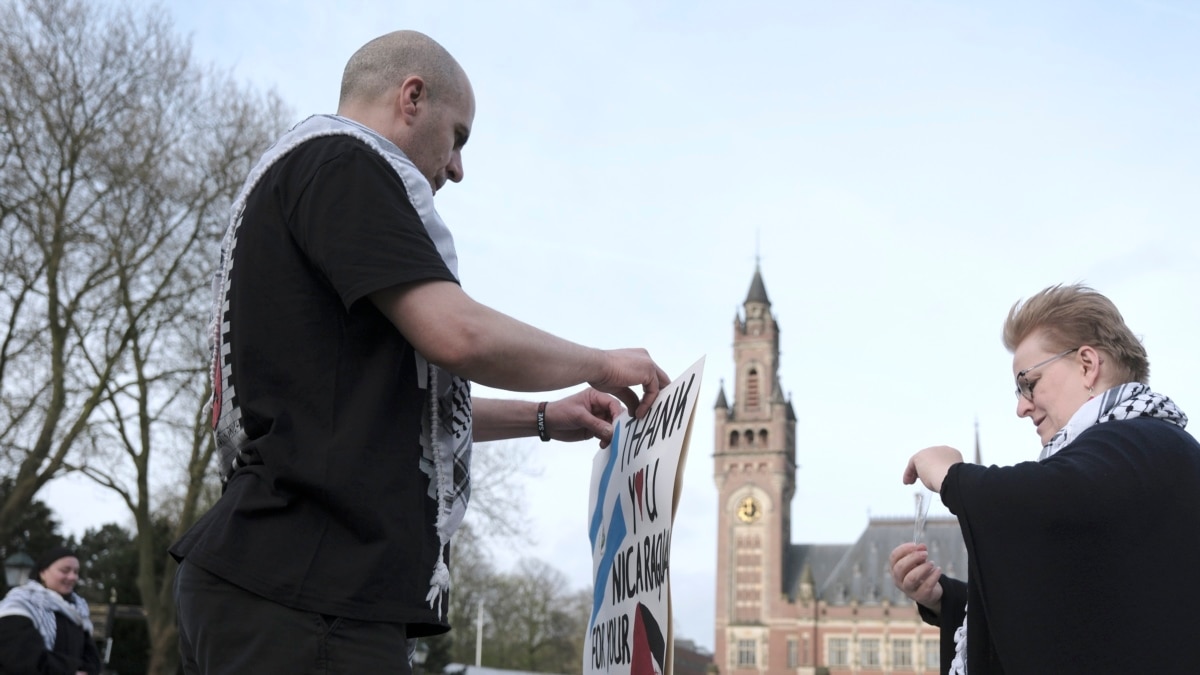Germany on Tuesday firmly rejected the complaint filed by Nicaragua before the United Nations’ highest court, accusing Berlin of facilitating violations of the Geneva Convention and international humanitarian law by providing weapons and other forms of support to Israel in its deadly offensive on Gaza.
“When we look closely, Nicaragua’s accusations fall apart,” Christian Tams, a member of Germany’s legal team, told the 16-judge tribunal at the International Court of Justice.
Nicaragua on Monday urged judges to order a halt to military aid to Israel, alleging that Berlin’s support enables acts of genocide and violations of international humanitarian law in the Gaza Strip.
The head of the German legal team, Tania von Uslar-Gleichen, said that Nicaragua’s claims “have no basis in fact or law. “They are based on an opinion about Israel’s conduct, which is not part of this process.”
Preliminary hearings on Monday and Tuesday focus only on Nicaragua’s request for what are known as provisional measures, which would include a court order for Berlin to stop military and other aid to Israel and restore funding to the agency. of UN aid in Gaza.
In Germany’s final argument, Von Uslar-Gleichen urged the judges not to impose preliminary measures and to dismiss Nicaragua’s complaint.
Tams said Germany has only approved four war weapons exports to Israel since October, “three of which concern test or training equipment.”
The lawyer showed the judges a photo of a German aid delivery dropped from the air over Gaza and added that Berlin continues to provide humanitarian support to the Palestinians “every day under extremely difficult conditions, collaborating constructively with international partners.”
The Nicaragua case is a new attempt to stop the Israeli offensive in the courts, presented by a country with historical ties to the Palestinian people. South Africa accused Israel of genocide in that same court late last year.
Israel’s allies face growing pressure to stop providing weapons to the country, and some of its supporters, such as Germany, have become more critical of the war.
Nicaragua’s ambassador to the Netherlands, Carlos José Argüello Gómez, stated in Monday’s session that “Germany is not fulfilling its own obligation to prevent genocide or ensure respect for international humanitarian law.”
However, another lawyer for Germany, Samuel Wordsworth, argued that the court could not conclude that Germany is in breach of its obligation to prevent genocide because the judges have not found that Israel is in breach of the Convention on the Prevention and Punishment of the Crime of Genocide.
In an earlier phase of the case brought last year by South Africa, the UN court said it was “plausible” that Israeli actions in Gaza could amount to breaches of the convention.
The court will likely take weeks to reach a preliminary ruling, and the Nicaragua case will likely take years to resolve.
Israel categorically denies that its military campaign involves genocidal acts and says it is acting in self-defense after Hamas militants stormed southern Israel on Oct. 7, killing about 1,200 people.
Since then, more than 33,000 Palestinians have died in Gaza, according to the territory’s Health Ministry. Their count does not differentiate between civilians and combatants, but notes that the majority of those killed were women and children.
According to the Stockholm International Peace Studies Institute, Germany is Israel’s second largest arms supplier, behind the United States. However, it would be more difficult, if not impossible, to bring the United States to court because Washington does not recognize the ICJ’s powers to compel countries to appear. The United States also has not signed a protocol to the anti-genocide convention that allows countries to bring related disputes to court.
Connect with the Voice of America! Subscribe to our channelsYoutube, WhatsApp and to newsletter. Turn on notifications and follow us on Facebook, x and instagram.



















